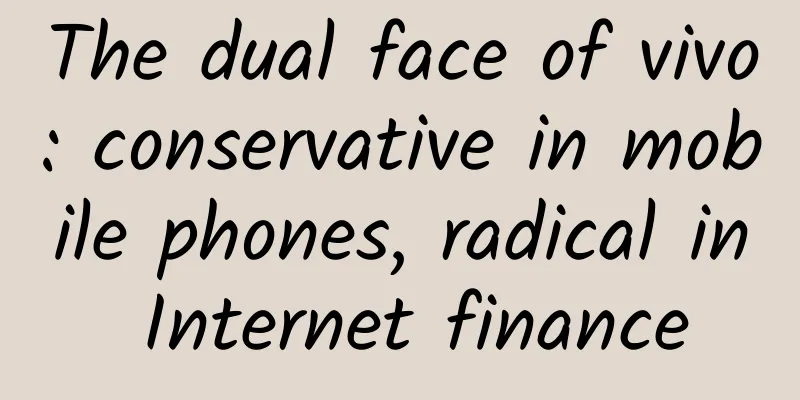LeEco and Xiaomi once again staged a mutual attack: full-scale PK with multiple breakthroughs

|
LeTV and Xiaomi, two Internet companies that claim to subvert traditional industries and were originally running on different tracks, have recently staged a fierce offensive and defensive battle in the fields of smart TVs and smart phones, and both want to spread the war to each other's "heartland." The war was started by Xiaomi, which recently joined hands with domestic video websites and film and television production companies to announce the overall data of its video content and terminal playback platform. Xiaomi CEO Lei Jun even said that Xiaomi TV currently has twice as much content as its competitors and is free of annual fees. Afterwards, Xiaomi co-founder Wang Chuan, who is in charge of TV, said that LeTV’s current core businesses include video, TV, mobile phones and automobiles. Unless LeTV ranks first in each business, it will be possible to achieve a strong combination. Otherwise, it will drag down other businesses. Wang Chuan also said that the relationship between LeTV and its other partners is a buyer-seller relationship, and that a win-win environment has not been created. One stone stirs up a thousand ripples. LeTV chairman Jia Yueting later made a public response, saying that Xiaomi did not have a deep understanding of Internet content and ecology, and that Xiaomi's content was not self-owned but obtained through loose alliances. In addition, Xiaomi's ability to charge for content was not strong. Jia Yueting also said that the market was not optimistic about LeEco's strategic layout of launching mobile phones, thinking that the industry was already a red ocean. However, LeEco believes that the current mobile Internet is about to enter the second stage, the real ecological stage. Judging from the statements made by Xiaomi and LeTV, on the one hand they want to bring the war to LeTV's core territory - the super TV field, and on the other hand they want to bring the war to Xiaomi's core field - the smartphone field, in order to disrupt the other party's position and profit from it. The competition between LeEco and Xiaomi is also a competition at the strategic level. LeEco's characteristic is that the group delegates power and launches an all-round offensive, while Xiaomi's strategy is to make breakthroughs in multiple areas such as mobile phones, TVs, and tablets. Both of them use offense as the best defense. Jia Yueting's toughness: daring to set up a stall and charge forward Judging from the size of the two companies, Xiaomi was valued at US$45 billion, or approximately RMB 270 billion, at the end of 2014, while LeTV's market value in the A-share market has reached RMB 130 billion. Looking at the leading figures, Lei Jun is known as a model worker in the IT industry, and Jia Yueting is a master of capital operations and has always been tough. Recently, LeTV carried out an additional issuance of up to 7.5 billion yuan. Jia Yueting will reduce his holdings of no more than 148 million shares of the company's stock in the next 6 months, with a reduction amount of up to 11.3 billion yuan. Not only will he lend it to LeTV to lock in profits in advance, but he will also allow LeTV to have nearly 20 billion yuan in funds. What's even more interesting is that Jia Yueting did not rely solely on listed companies and his own cash to expand LeEco, but also used external funds. For example, LeEco Mobile, a subsidiary responsible for the development of LeEco's mobile phone business, launched a new round of financing, with a financing amount of more than US$300 million. For example, LeTV Sports, which was established only one year ago, raised 800 million yuan with a valuation of 2.8 billion yuan. Investors included Yunfeng Fund under Alibaba Group Chairman Jack Ma , and Pusi Investment under Wanda Group Director Wang Sicong. LeEco's expansion of these new businesses is not without rules. Jia Yueting's logic is to find a suitable person in charge first, such as Feng Xing, senior vice president of LeEco Holdings and president of LeEco Mobile Intelligence, who was the former general manager of Lenovo Group's MIDH China Business Department. Jia Yueting is also willing to give shares to new projects. For example, the main shareholders of LeTV Sports and their shareholdings are as follows: the same actual controller of the company holds 38.97% of the shares, of which the core team of LeTV Sports holds 21.26% in total, and the company holds 10.63%. An industry insider analyzed LeEco's hiring characteristics and said that Jia Yueting looked for a group of talented and capable people and gave them attractive enough shares, and these people led LeEco's various businesses to move forward desperately. Under this strategy, LeEco's ecosystem expanded rapidly. As an emerging business, Jia Yueting has high expectations for LeTV's super phone. Jia Yueting said that the sales of the previous two phones were very hot, and the rush to buy is expected to continue in the future. The mobile phone business has achieved phased results, far exceeding its own expectations. Currently, LeTV Group's business is divided into two systems, the listed company system and the non-listed company system. The businesses within the non-listed companies are all forward-looking businesses that are in the investment stage, require a strong financial foundation, and have not yet generated profits. Jia Yueting's strategy was that LeTV Mobile was previously in a state of being controlled by a holding company and held by a listed company, which not only ensured the development of new businesses, but also prevented LeTV's new businesses from having an adverse impact on the profits of the listed company, thereby ensuring the maximization of the interests of the listed company's shareholders. Lei Jun's attack: Xiaomi is trying to expand overseas step by step Compared with LeTV's aggressive charge, Xiaomi's approach seems to be more cautious. In addition to developing several core products such as smartphones, smart TVs, tablets, routers, and boxes, it also invests in other products through the ecological chain and gradually expands Xiaomi overseas. In terms of funding, Xiaomi is not short of money. In the past five years, Xiaomi has basically received a round of financing every year. In December 2014, Lei Jun also announced that Xiaomi had received $1.1 billion in financing, with a valuation of $45 billion. In addition to completing several rounds of financing, Xiaomi received a loan of US$1 billion from 29 banks at the end of October last year. These 29 lending banks include Deutsche Bank, JPMorgan Chase, Morgan Stanley, etc. Xiaomi itself is also very profitable. From a fundamental perspective, Xiaomi is also expanding internationally in places like India, and making a series of investments in the Xiaomi ecosystem in China. In the past year alone, Xiaomi has invested more than 5 billion yuan in mergers and acquisitions, investing in 39 ecosystem companies. Among Xiaomi's investment projects, iQiyi, 21Vianet, Midea Group, Kingsoft, Xunlei, etc. are the most typical. In April this year, Xiaomi also invested in electric self-balancing scooter company Ninebot, which in turn acquired Segway, the global pioneer of self-balancing scooters. An investment industry insider told Tencent Technology that in the future, Xiaomi's ecological chain companies will increasingly go overseas. Ecological chain products including Xiaomi bracelets and Xiaomi chargers have already gone overseas, and the overseasization of these products has also enhanced the influence of Xiaomi's ecological chain. Compared with LeTV, Xiaomi has also borrowed a lot of capital power, but looking at Xiaomi's actions, Xiaomi rarely opens up the equity of its businesses like LeTV. Instead, it is more focused on investment and acquisitions. For example, Xiaomi TV was acquired through the acquisition of Duokan. Why is LeEco more willing to release equity and develop large subsidiary businesses, while Xiaomi, as a whole, is more willing to invest in other businesses? Xiaomi President Lin Bin once told Tencent Technology that he still doesn't understand LeEco's model. Xiaomi's model is very simple, which is to focus all energy and resources on specific products to achieve breakthroughs. In addition, other companies use investment and strategic cooperation to build an ecological chain. Jia Yueting admitted in response to investors' questions that LeEco was indeed a little lacking in mergers and acquisitions before, but this was also related to the company's concept of "inward-looking" development, because inward-looking development is easier to achieve ecologicalization. Jia Yueting said that LeEco is currently considering an "external" development layout, hoping to find a better way to achieve the integration of acquired companies and internal ecology. The company does not have enough talent reserves in the M&A business, and is also actively recruiting top talents. Video copyright dispute: Xiaomi and LeTV each have their own opinions As Xiaomi's smartphone sales rank among the top five in the world, and it is actively developing hardware businesses such as tablets, TVs, and boxes, it has also recruited former Sina editor-in-chief Chen Tong to strengthen its content operation capabilities and find core breakthroughs in the TV and tablet fields. Lei Jun once admitted that content is a matter of life and death for Xiaomi TV, Xiaomi Box, Xiaomi mobile phone, and Xiaomi tablet. When Xiaomi's platform reaches a certain stage, it needs to enhance its content operation capabilities, which is an urgent problem that Xiaomi needs to solve. Currently, Xiaomi is investing $1 billion in video websites and film and television companies. This approach has a special background. Analysts said that LeEco bought out the Internet copyrights of many movies and TV series at very low prices 7 or 8 years ago. Since Xiaomi entered the market late, most of the video content had already been divided up. Xiaomi either had to pay a high price to buy it, or even couldn't buy some of it even if it wanted to. Xiaomi's strategy is not to join the war of purchasing online copyrights, but to spend money to become a shareholder of major video websites. Some commentators say that Xiaomi's move is very smart, as it can obtain authorization to use copyrighted content as a shareholder, and can also enjoy the benefits of the development of video websites. Since almost all video websites are burning money now, Xiaomi's $1 billion is an important ammunition. Video websites can get money and gain click-through rates on Xiaomi TV and box platforms without having to spend a penny more on copyright fees, so they are willing to cooperate with Xiaomi. A person in the video industry pointed out that at present, LeTV says it owns the most video content copyrights, and Xiaomi says it can legally provide the most content to users for viewing. Both statements are correct, but they are talking about two different things, and users don't care whether it is exclusive or not. Xiaomi also faces challenges. Smart TVs and tablets are not improved as frequently as smartphones. Once users buy them, they may continue to use them for several years. LeTV has a first-mover advantage in the smart TV field, which cannot be solved by content alone. It should be noted that while LeTV and Xiaomi were fighting, 360 company chairman Zhou Hongyi 's Dasheng mobile phone was also on sale. It was claimed that 300,000 Dasheng F1 mobile phones were sold out in just 18 minutes and 9 seconds, but it was quickly drowned out by the sudden escalation of the war of words between Xiaomi and LeTV. At the same time, Xiaomi cannot ignore Huawei, another rival. Huawei has gradually occupied the mid-to-high-end market in the past year, and some company bosses have recommended their employees to use Huawei phones. To some extent, Huawei is a greater threat to Xiaomi. The entire smartphone market is already a red ocean war, and Xiaomi is also actively responding. Recently, Xiaomi announced that Wang Xiang, former Qualcomm Global Senior Vice President and President of Greater China, will join Xiaomi as Senior Vice President, responsible for strategic cooperation and important partnerships. As a winner of Toutiao's Qingyun Plan and Baijiahao's Bai+ Plan, the 2019 Baidu Digital Author of the Year, the Baijiahao's Most Popular Author in the Technology Field, the 2019 Sogou Technology and Culture Author, and the 2021 Baijiahao Quarterly Influential Creator, he has won many awards, including the 2013 Sohu Best Industry Media Person, the 2015 China New Media Entrepreneurship Competition Beijing Third Place, the 2015 Guangmang Experience Award, the 2015 China New Media Entrepreneurship Competition Finals Third Place, and the 2018 Baidu Dynamic Annual Powerful Celebrity. |
<<: Why did Xiaomi make a 3,000 yuan router?
>>: How much potential does NetQin's technology line have under the Blueberry strategy?
Recommend
Discussion on building iOS engineering framework elegantly and quickly
A concise and elegant iOS project directory can h...
14 free drawing tools recommended by marketing professionals
This page collects some free tools for creating b...
How can Douyin increase followers quickly and effectively?
There are three ways to increase followers: conte...
When you participate in a multi-person video conference, you are the only real person! How to prevent AI fraud?
Audit expert: Liu Xiangquan Director of the Robot...
Do Alibaba and Tencent still have a chance against the latecomers in the shared bike industry?
More than half a month later, ofo officially anno...
Li Zhongying's video on children's learning ability and results
Li Zhongying's children's learning abilit...
Table tennis teaching course video collection
Course Catalog: ├──05-shakehandloop-attack.mp4 1....
Guangzhou appearance scoring mini program function, how much does it cost to develop the WeChat appearance scoring mini program?
“Everyone loves beauty,” especially female friends...
[Taught by Irvin Yalom] Group therapy records and interviews | 100% restoration of the scene × 10 video lessons
【Taught by Irvin Yalom】Group Therapy Records and ...
TikTok's fortunes take a turn for the better as Trump supports partnerships with Oracle and Walmart
[[342867]] September 20 (Sunday) was supposed to ...
Eating, drinking, defecating and urinating are all done in the bag. Will the baby kangaroo be suffocated by the smoke?
What is it like to stay in a kangaroo mother'...
Form costs reduced by 30%, home decoration advertising case!
With the further deepening of regulation and cont...
Apple executive talks iOS 14.5 app tracking transparency: "Users should and need to control" data
[[396138]] April 27 news With the release of iOS ...
Describe the design pattern in one sentence
[[143440]] As the title says, actually, I think t...
Inventory | 8 mainstream monetization paths for Internet self-media people!
In the era of self-media, people are no longer si...









